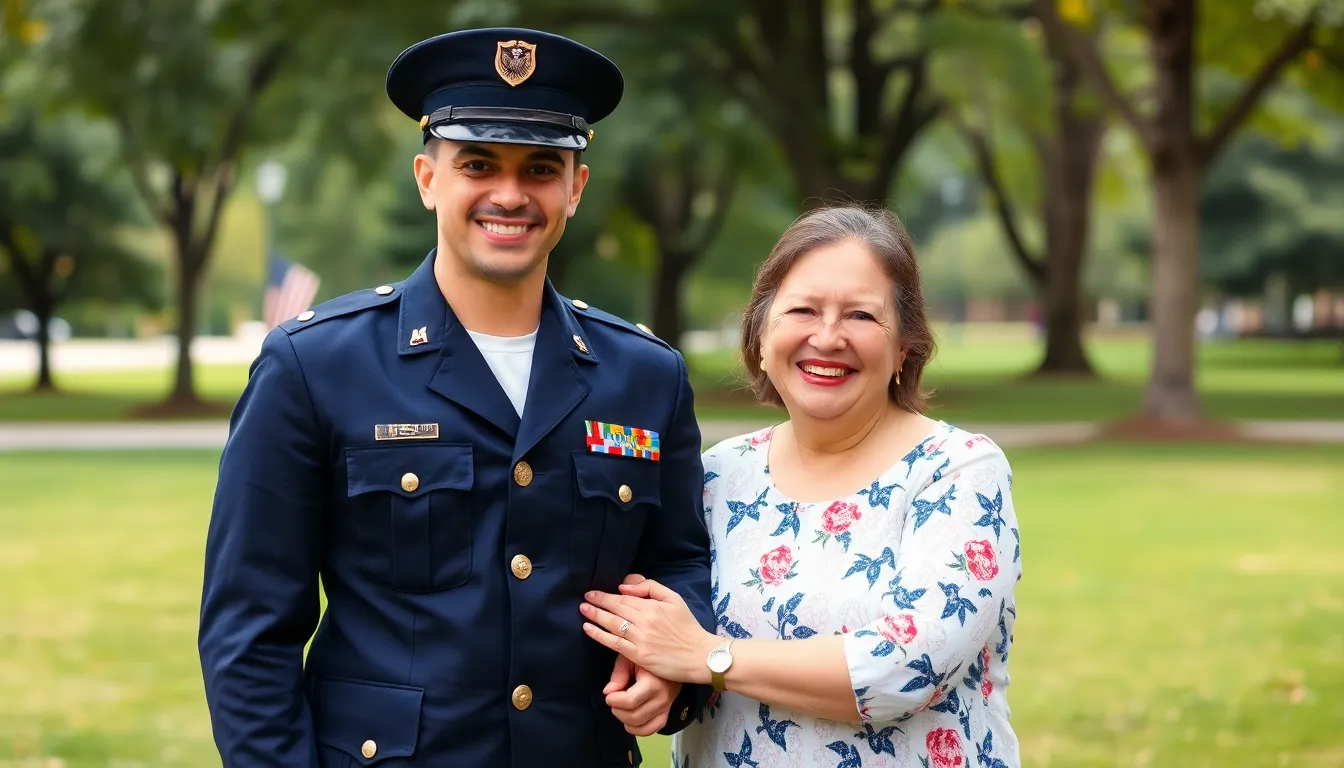Navigating the complexities of military parole in place can feel like trying to assemble IKEA furniture without the instructions—frustrating and confusing. But fear not! With the right checklist, this process becomes less daunting and a lot more manageable. Whether you’re a service member or a family member, understanding the ins and outs of parole in place can open doors to a smoother path in immigration status.
Table of Contents
ToggleUnderstanding Military Parole In Place
Military parole in place provides a pathway for certain family members of service members to adjust their immigration status without leaving the United States. This option primarily targets those who are in the country unlawfully but have a substantial connection to military service. It reduces the fear of deportation for these individuals.
Eligibility for military parole in place includes service members, veterans, and individuals with an approved resettlement plan. Applications typically require proof of military service, documentation showing the family relationship, and evidence of the beneficiary’s continuous presence in the country.
Supporting documentation plays a crucial role in this process. It often includes birth certificates, marriage licenses, and service records. These documents help establish a clear connection, essential for the approval.
The application process entails submitting Form I-131, alongside necessary supporting evidence. By doing so, service members can request this benefit for family members who qualify. Timeliness remains vital; submitting applications promptly ensures proper processing.
Approval of military parole in place offers temporary relief and peace of mind. While recipients can remain in the U.S., it does not grant permanent residency or a path to citizenship. Understanding these aspects enables service members and their families to navigate their options effectively, thereby creating a smoother immigration experience.
Importance Of Military Parole In Place

Military parole in place plays a significant role for service members and their families by providing essential immigration support. Accessing this process can alleviate stress related to immigration status while keeping families together.
Benefits For Service Members
Service members benefit greatly from military parole in place, as it allows them to focus on their duty without the constant worry of their family members’ immigration issues. Establishing a legal status through this pathway helps reinforce the family’s unity, enabling service members to perform their responsibilities effectively. Additionally, the process supports immediate family members with the opportunity to remain in the United States while avoiding the complexities of leaving the country for visa applications. With proper documentation and submittion of Form I-131, service members can streamline immigration issues, granting peace of mind essential for military service.
Benefits For Families
Families reap numerous advantages from military parole in place, primarily through the stability it provides. Family members gain the ability to stay in the country, which strengthens their emotional bonds during challenging military deployments. Legal status allows them to access healthcare, education, and job opportunities unavailable to those without permission to remain in the U.S. This process also encourages family members to contribute to their communities, fostering integration and engagement. Moreover, by ensuring their legal presence, families experience less anxiety, promoting overall well-being and support for the service member.
Key Components Of The Military Parole In Place Checklist
Understanding the key components of the military parole in place checklist promotes a smoother navigation of the application process for service members and their families. Each section requires careful attention to detail.
Eligibility Criteria
Eligibility for military parole in place includes specific groups connected to the military. Immediate family members of service members and veterans qualify. Approved resettlement plans play a significant role in determining eligibility. Continuous presence in the United States is crucial. Moreover, proof of military service provides necessary support. Individuals unlawfully present due to military connections are eligible to apply.
Application Process
The application process for military parole in place begins with submitting Form I-131. Accurate completion of the form is vital for approval. Along with the form, applicants must include necessary evidence. Jumping ahead, timely submission of the application enhances processing efficiency. Service members should consult available resources to ensure proper guidance during submission. Following these steps streamlines the experience for families seeking immigration relief.
Required Documentation
Required documentation serves as a foundation for the application. Applicants must present proof of family relationships, such as marriage and birth certificates. Military service records function as additional evidence demonstrating eligibility. Consistency in the documentation reinforces the application’s strength. Relationships between service members and their family members must be clearly established. Each document plays a pivotal role in securing approval for military parole in place status.
Common Challenges And Solutions
Navigating military parole in place presents specific challenges. Understanding these hurdles and addressing them can significantly streamline the process for families.
Navigating Bureaucracy
Bureaucratic systems can complicate military parole in place. Service members often face lengthy wait times for responses. Each form requires meticulous attention to detail to avoid unnecessary delays. Familiarity with the documentation process is crucial. Utilizing resources, such as legal aid or advocacy groups, can simplify navigation through complex requirements. Setting reminders for deadlines ensures timely submissions. Tracking communications with immigration offices helps maintain clarity during the process. Relying on accurate information from official sources reduces confusion.
Addressing Denials
Addressing denials can be challenging for families. Understanding the reasons for a denial is essential for reapplication. Common issues include missing documentation and insufficient proof of eligibility. Gathering additional evidence, such as affidavits or joint tax returns, may strengthen subsequent applications. Some families might benefit from consulting immigration attorneys who specialize in military issues. Recognizing any patterns in past applications can prevent future mistakes. Exploring appeal options provides a pathway for reconsideration. When faced with denial, remaining proactive and informed can help navigate future applications more effectively.
Navigating military parole in place can be daunting but understanding the checklist simplifies the process significantly. By gathering the necessary documentation and knowing the eligibility criteria service members and their families can create a more manageable experience. This pathway not only supports family unity but also fosters stability in their lives while service members fulfill their duties.
Being proactive and informed is essential for overcoming challenges that may arise during the application process. With the right resources and guidance families can successfully navigate military parole in place, ensuring their loved ones remain together in the United States. Embracing this opportunity can lead to a brighter future for service members and their families.



